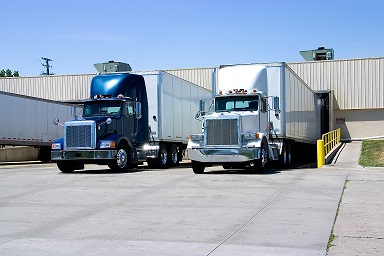California Court of Appeal Clarifies Distinction Between Motor Carriers and Brokers
August 19th, 2015/By Admin/In Blog

Many of Tharpe & Howell’s clients act as both motor carriers and transportation brokers. When interstate cargo is lost or damaged, the distinction can be critical because a “motor carrier” is subject to the strict liability provisions of the Carmack Amendment (49 U.S.C. Section 14706), while a “broker” is only liable if negligence is proved. There is no rigid test to determine carrier vs. broker status, but the recent decision of the California Court of Appeals provides clarification.
In Tokio Marine & Fire Insurance Co., Ltd. v. Megatrux, Inc., Megatrux, a licensed transportation broker, arranged for interstate transportation of cargo for Tokio Marine’s insured, by hiring a motor carrier. Because the motor carrier had no vehicles available on the pick-up date, the shipper requested that the cargo be picked up and temporarily stored in Megatrux’s warehouse. Megatrux hired a local trucker to pick up the cargo and bring it to the warehouse. Megatrux unloaded the cargo, stored it a few days, and then loaded it onto the trailer of the motor carrier that was originally hired to perform the transport. The driver then left the loaded vehicle on the street overnight, and the cargo was stolen.
Tokio Marine, evidently realizing that a negligence claim against Megatrux was weak, alleged that Megatrux was a “motor carrier” and subject to the strict liability standards of the Carmack Amendment. They argued that its “motor carrier” status could be proved by evidence: that Megatrux “held itself out” as a motor carrier; that the bill of lading identified Megatrux as the carrier; and that Megatrux had performed “transportation services” as defined by 49 U.S.C. Section 13102.
The Opinion confirmed that under the right circumstances, a broker that “holds itself out” as a carrier can be deemed a carrier when loss occurs. But, for a triable issue to exist, there must be evidence that the manner in which the defendant portrays itself to the public is connected to the services actually provided. Particularly, there should be evidence that the shipper relied on representations that the defendant was going to act as a carrier. In this case, the Court found that no such evidence against Megatrux exists.
Perhaps the most significant part of the Opinion is the analysis of the effect of Megatrux’s name appearing on the bill of lading, identifying it as the “carrier.” This is an all too common occurrence – and one that has repeatedly prevented the granting of Summary Judgment in the past. This Opinion held that such a bill of lading does not create a triable issue of carrier status when: the bill is not created by the defendant, but instead is created by the shipper who needs to put a name into the “carrier” field on the document, and only puts the broker’s name in because, at the time of the transaction, it does not know the name of the motor carrier that the broker will hire.
Here, there were many prior transactions between the shipper and Megatrux wherein Megatrux never acted as anything but a broker, despite many prior bills of lading which named it as the “carrier.” Therefore, there was abundant evidence of custom and practice in this particular case, regarding the many prior transactions between the shipper and Megatrux.
Finally, this Opinion is important because it holds that just because a defendant performs acts that fall within the definition of “transportation” under 49 U.S.C. Section 13102 (services related to warehousing, movement, transfer in transit, and storage are within the definition), there is not automatically a triable issue that the defendant acted as a “motor carrier.” Instead, the Court found there must be evidence that the defendant actually engaged in “motor vehicle transportation” which, in this case, Megatrux’s conduct did not.
While this decision is helpful, the Opinion cautioned that trial courts are still free to “examine the expectations of the parties and the circumstances of the specific transaction in each case for indicia of carriage and brokerage services.” Therefore, it serves as a strong reminder that when you intend to perform only transportation broker services, special care must be taken to insure that all oral and written communications with customers and motor carriers you contract with are clear regarding your limited status as a “broker.”
This article is brought to you by Robert Bruce Salley, Chair of the Firm’s Transportation Law Practice, providing legal services to commercial transportation carriers and insurers in all California jurisdictions. Please feel free to contact Mr. Salley at (818) 205-9955 to discuss how his team can effectively assist with your commercial transportation legal needs.





